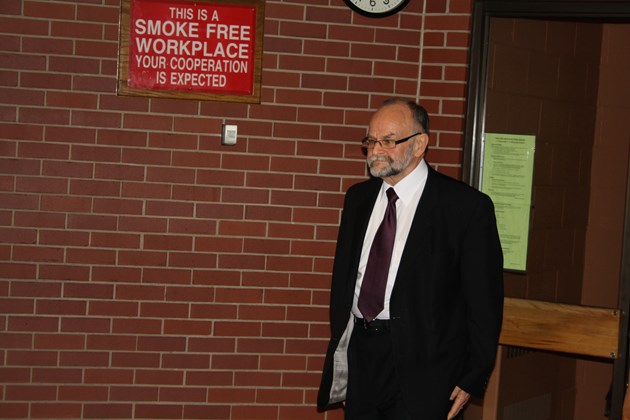Crown Wants to Call Rebuttal Evidence in Hawkes Sex Assault Trial
Local Xpress
The Crown says it plans to call rebuttal evidence in the trial of Rev. Brent Hawkes, who is accused of indecent assault and gross indecency against a student at the school where he was teacher in the 1970s. After the defence wrapped up its case Monday afternoon in Kentville provincial court, Crown attorney Bob Morrison told Judge Alan Tufts he wants to call two or three witnesses to testify on the issue of whether alcohol was served to students in Hawkes' home around the time of the alleged crimes. The complainant and other Crown witnesses, who were students at West Kings District High School, testified that Hawkes had alcohol in his trailer and that it was offered to them on the night the complainant says Hawkes sexually assaulted him. Hawkes testified that he never provided alcohol to students if they came to his home, although there was some there for teachers if there was a get-together with both students and teachers present. The Crown and defence will argue Tuesday whether the testimony should be allowed. Outside court, Morrison said the two witnesses were known to the Crown already, and didn't come forward as the case played out. “They were part of the Crown's case all along. We knew of their existence, and only recently did their evidence became more relevant,” he said. “As their case progressed, what they had to say became more and more important.” Earlier in the day Monday, the defence wrapped up its case with testimony from a psychologist with experience in matters of memory. Tim Moore is chair of the department of psychology at York University's Glendon College. He said while most people understand that memories can fade over time, “they might not appreciate that memories can undergo a substantial amount of modification over time, and the longer the time, the more opportunity for ... misinformation effects to occur.” He also said that alcohol can not only impair memory, it can block memories entirely. “It prevents memory, period, for at least some period of time, and those blackouts can be (fragmented). ... Some parts of the day or evening may be blacked out, but not all of them, but there's nothing to remember from those time periods because nothing made it into long-term memory". Moore also testified that it is common for people with blanks in their memories to insert memories and adopt them as real. “From a memory perspective, you would try to impose some coherence on what would otherwise be a fragmented memory,” he said. “You might make some assumptions about what happened ... because you don't know, you might ask someone for assistance, or you might simply try really hard to remember, and you might unwittingly make some assumptions.” Moore also testified about "imagination inflation,” when someone initially recognizes an imagined event as not being real, but later has difficulty distinguishing whether the memory was of an actual or real event. Defence lawyer Clayton Ruby also had Moore testify about certain sections of testimony at the trial, and how it might be examples of certain types of memory loss or false memories. Under cross-examination, Moore said if someone reports an event that happened years earlier, he would call it a memory, not a recovered memory. He agreed with a suggestion from Morrison that someone with a false memory might give a rich, detailed narrative and give the impression they believe, while someone who has actually experienced something might give it in a “fragmentary, hesitant way.” Moore replied that it could, “and everything else in between.” He agreed that incoherent memories don't necessarily mean that they're false, and that people remember incidents that are more significant or have a greater impact on them, without remembering the minor details around them. “That doesn't mean that the core memory, the unusual or significant thing that happened, it doesn't necessarily affect that, does it?” Morrison asked. “No, it shouldn't surprise us that relatively peripheral or incidental features of our memory perhaps fall by the wayside,” Moore replied. Hawkes is accused of having forced oral sex with the complainant on a night he and at least two other students went to Hawkes' trailer. Closing arguments are scheduled to take place Wednesday, after which Tufts is expected to reserve his decision. Hawkes has denied the allegation, as well as much of the story of the evening of the alleged assault testified to by three Crown witnesses, including the complainant.
|
.
Any original material on these pages is copyright © BishopAccountability.org 2004. Reproduce freely with attribution.
